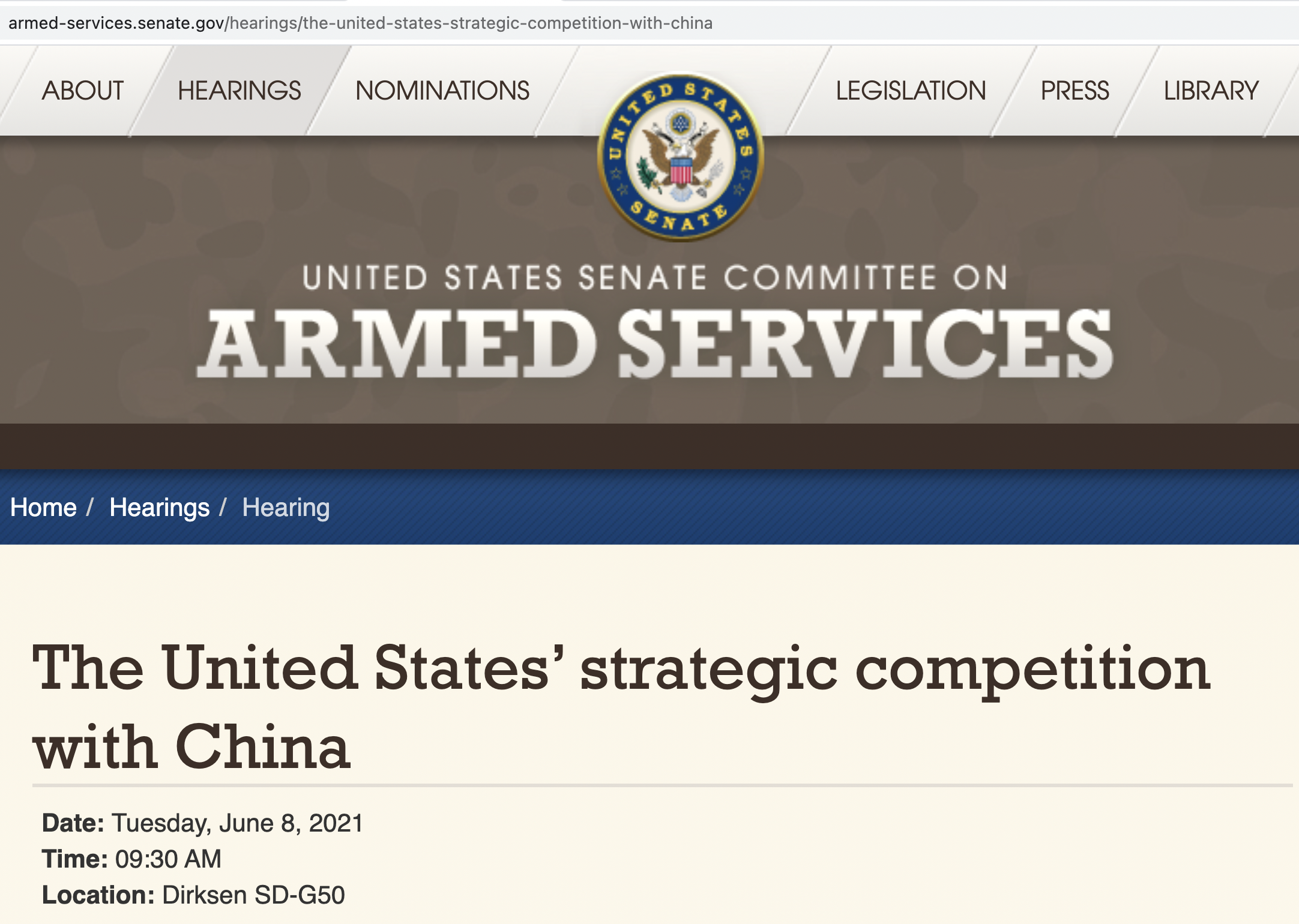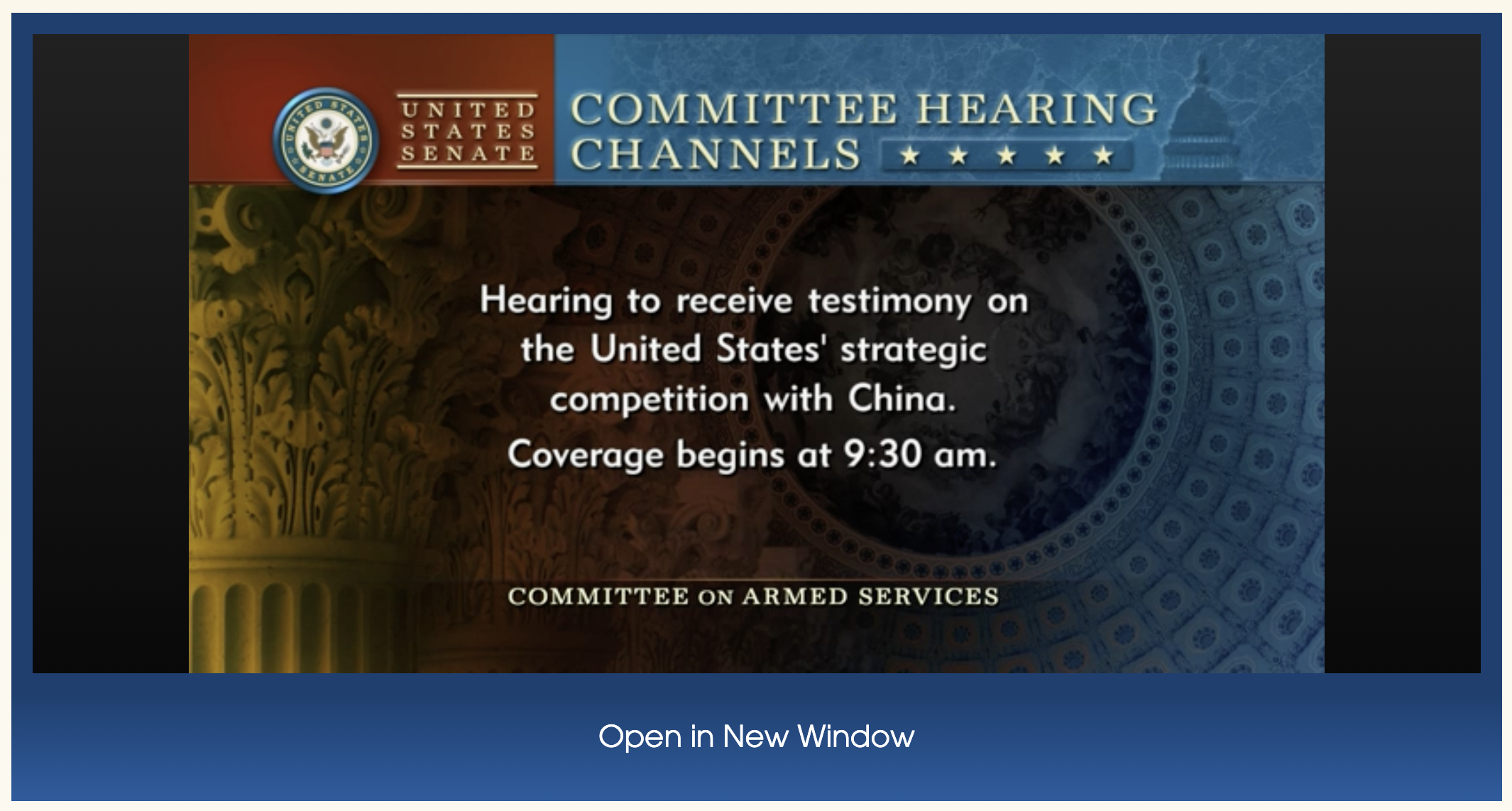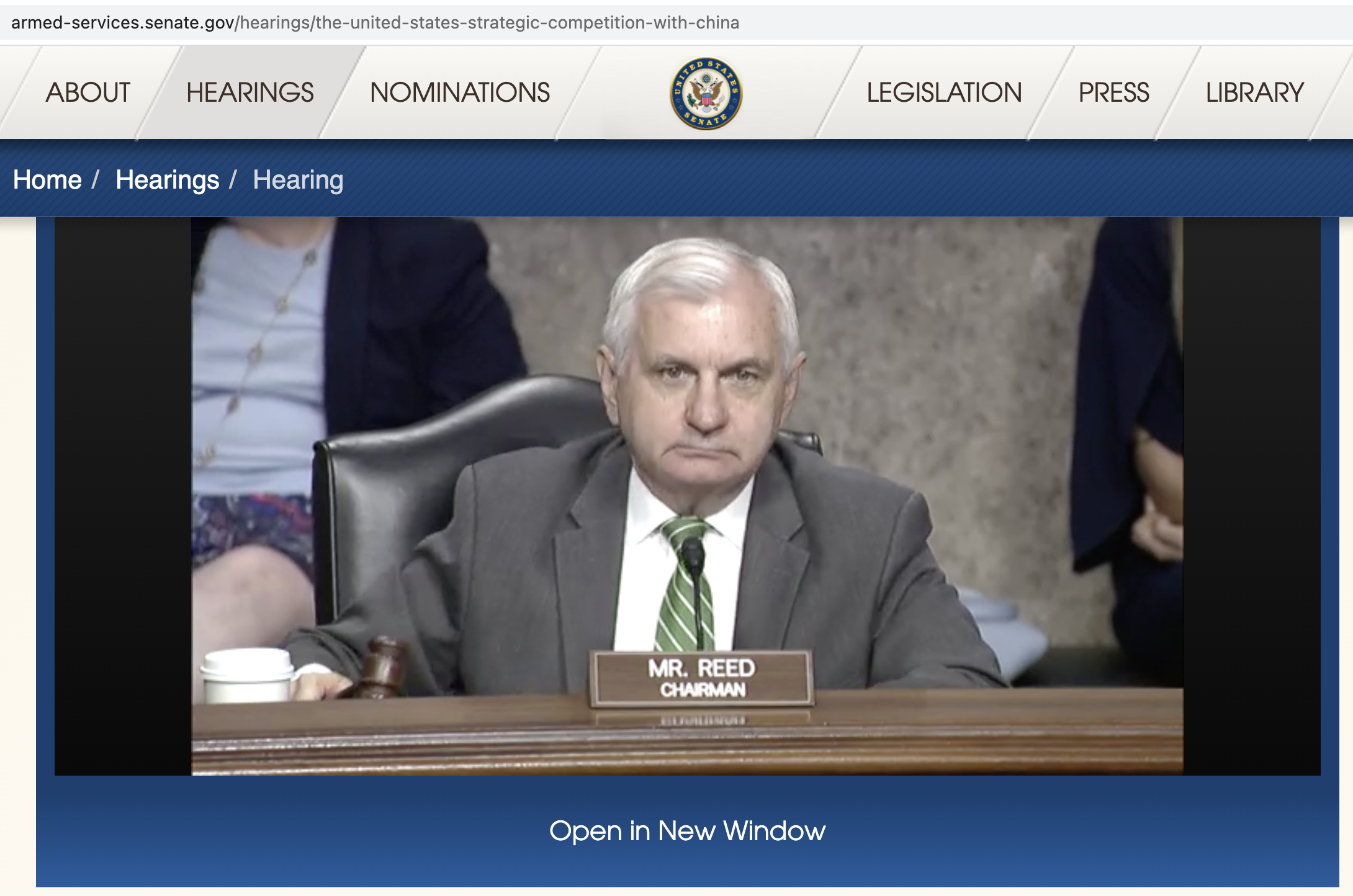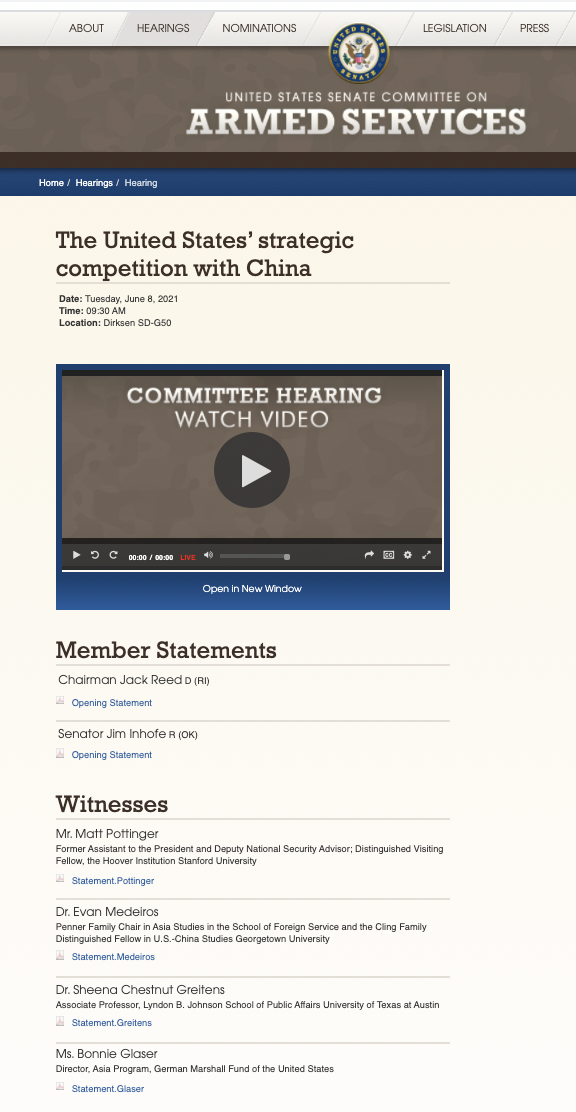Exceptionally Enlightening Hearing—“The United States’ Strategic Competition with China”! SASC Testimony from Matt Pottinger, Evan Medeiros, Sheena Chestnut Greitens & Bonnie Glaser
Worth watching and reading in full! The Senate Armed Services Committee had the good sense to invite a varied set of top-caliber experts to offer complementary assessments. Among their many contributions, Pottinger frames, Medeiros contextualizes, Greitens situates, and Glaser recommends…
Hearing on “The United States’ Strategic Competition with China”
Senate Armed Services Committee
Date: Tuesday, June 8, 2021
Time: 09:30 AM
Location: Dirksen SD-G50
Click here to watch a webcast of the hearing.
MEMBER STATEMENTS
- Chairman Jack Reed (D-RI)
- Senator Jim Inhofe (R-OK)
WITNESSES
Former Assistant to the President and Deputy National Security Advisor; Distinguished Visiting Fellow, the Hoover Institution Stanford University
Beijing’s Grand Strategy to Displace America
Chairman Reed, Senator Inhofe, it’s a privilege to appear before your committee today.
The free world was slow to realize it, but the adversarial relationship between Washington and Beijing didn’t begin with Xi Jinping’s rise to power in 2012, or with President Trump’s election in 2016. It began three decades ago when the Chinese Communist Party revised its grand strategy at the end of the Cold War. At the time, Party leaders had been shaken by three historic events: The 1989 prodemocracy protests in Tiananmen Square; the American-led, lopsided victory over Saddam Hussein’s forces in early 1991; and the collapse of the Soviet Union in late 1991.
“The Tiananmen Square protests reminded Beijing of the American ideological threat; the swift Gulf War victory reminded it of the American military threat; and loss of the shared Soviet adversary reminded it of the American geopolitical threat,” writes Rush Doshi in his recent book, The Long Game: China’s Grand Strategy to Displace American Order.1 “In short order, the United States quickly replaced the Soviet Union as China’s primary security concern, that in turn led to a new grand strategy, and a thirty-year struggle to displace American power was born.”
The grand strategy set in motion by China’s rulers aimed first to dilute American influence in Asia, then to displace American power more overtly from the region and, ultimately, to dominate a global order in ways that suit and promote Beijing’s authoritarian model. … … …
Penner Family Chair in Asia Studies in the School of Foreign Service and the Cling Family Distinguished Fellow in U.S.-China Studies Georgetown University
Chairman Reed, Ranking Member Inhofe and distinguished members of the Committee, thank you for the opportunity to join you today to discuss U.S.-China strategic competition. Mr. Chairman, as a native of the great state of Rhode Island, it is a particular pleasure to share my views today with your Committee.
It has become trite but accurate to point out that the U.S.-China relationship is the most consequential relationship in global politics today. But this claim is accurate not only because U.S.- China ties have become contentious and competitive, but because the competition is multi-facetted, dynamic and may ultimately be a greater challenge than the Soviet Union. In particular, U.S.-China relations will have a defining influence on the distribution of power across East Asia at the very time that the region becomes the center of global politics, as Europe was during the Cold War. Thus, the Biden administration’s approach to competition with China is now a paramount question for leaders in the United States, in Asia, and globally. The challenge for U.S. policymakers, business leaders and scholars is to understand the nature of the competition – now and in the future – and to ensure U.S. responses are both robust and flexible enough to keep up with the challenge.
Toward that end, my testimony today will briefly touch on three issues: (1) the changing geopolitical and regional context for U.S.-China competition; (2) the nature of the U.S.-China relationship and the meaning of strategic competition; and (3) recommendations for U.S. policy given my prior characterization of the challenge. … … …
Associate Professor, Lyndon B. Johnson School of Public Affairs University of Texas at Austin
Chairman Reed, Ranking Member Inhofe, distinguished Senators, thank you for having me today to discuss this central question facing American foreign policy. My remarks today will address China’s approach, under Xi Jinping, to what the party-state terms “national security” — a concept that has profoundly changed the face of repression and internal security inside China, as well as China’s security policies abroad.1
In the United States, national security is largely a matter of foreign policy, while homeland security deals with internal threats and challenges. By contrast, China’s concept of national security gives a prominent role to internal threats, often frames external threats through their ability to impact internal regime stability, and employs a wide array of non-military tools to secure the party-state both within and without. China’s new national security strategy also calls on China to become more proactive in preventing threats from emerging at all, which explains much of the PRC’s recent, more proactive, and more repressive behavior at home and abroad. Much of the behavior we are discussing today is the result of a grand strategy aimed fundamentally at protecting the internal regime security of the Chinese Communist Party. … … …
Director, Asia Program, German Marshall Fund of the United States
Chairman Reed, Ranking Member Inhofe, and distinguished members of the Senate Committee on Armed Services, thank you for the opportunity today to testify at this important hearing on “The United States’ Strategic Competition with China.”
My testimony today will focus on three issues: China’s gray zone tactics in support of its strategic objectives; deterrence in the Taiwan Strait and U.S. policy toward Taiwan; and the role of U.S.-China military ties in deterring conflict and managing escalation. … … …









































